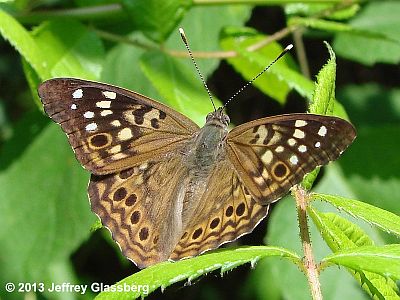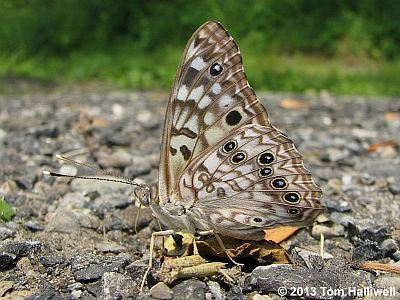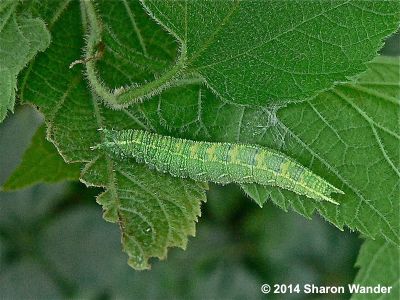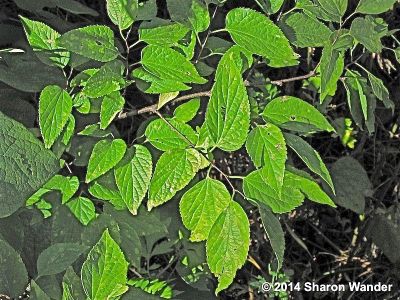New Jersey Butterfly Club
A chapter of the North American Butterfly Association (NABA)
Hackberry Emperor
Asterocampa celtis
Identification: Small—2.0". Above: FW and HW light brown. FW with bright white spots on blackish wingtip and one prominent black eyespot along outer edge. Innermost of 2 bars extending in from FW leading edge is broken (think, “hacked”) into 2 spots. HW with row of black spots inward from margin. Below: FW and HW with complicated sepia-toned pattern; prominent band of pale-centered eye spots in HW and 1 light and one black eyespot near trailing edge of FW.
NJ Status and Distribution: Resident. Fairly common and widespread.
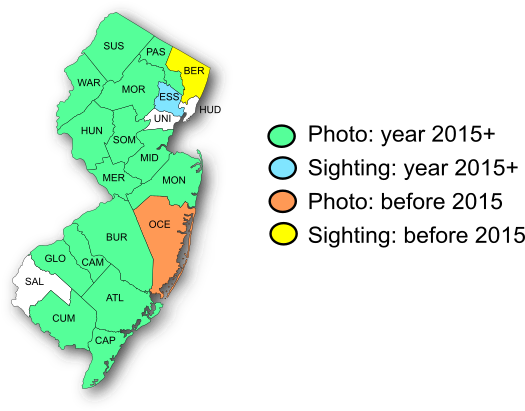
Habitat: Deciduous-forest edges and openings with the host plant. Can be attracted to gardens with overripe fruit. Most often seen on bare ground and on roads, including paved roads.
Flight Period: Two broods, the first from early June to mid-July; and a smaller emergence from August to October. Extreme dates: North Jersey 5/30—10/10; South Jersey 5/30—10/9.
Caterpillar Food Plants: Common Hackberry (Celtis occidentalis), a widespread tree of woodland edges on sandy soils, limestone soils, and floodplains.
Overwintering Stage: Caterpillar.
Good Locations: Delaware Water Gap NRA (near the river), Appalachian Trail Lands, Whittingham WMA, Sourland Mountain Preserve, Duke Farms, Riverwinds Scenic Trail (West Deptford, Gloucester Co.), Wheelabrator Refuge (Westville, Gloucester Co.) Red Bank Battlefield (National Park, Gloucester Co.).
Comments: You may know pretty quickly if you are in the presence of this attractive butterfly. No sooner are you out of your car than one will land on your skin or clothes, probing away with its green proboscis. This behavior earns it the informal name of "hackberry greeter."
